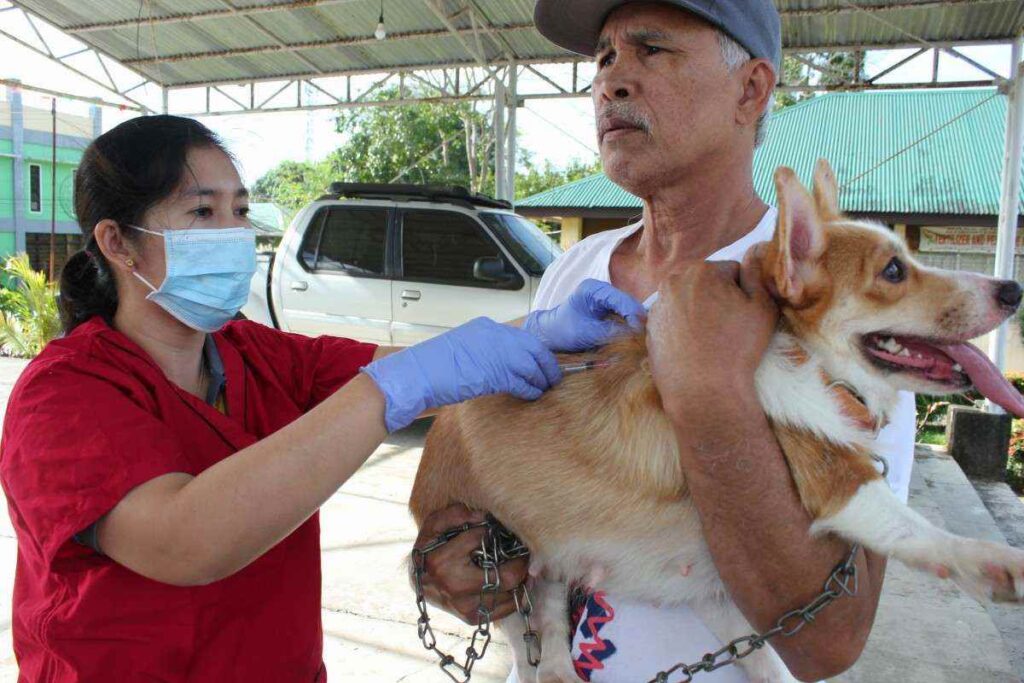Dog Vaccine Care
In the Philippines, dog registration is often required by local government units (LGUs) to promote responsible pet ownership and control stray animals. The process may vary by municipality or city, but here is a general guide: 1. Determine Your LGU’s Requirements Visit your barangay or city hall to inquire about specific requirements for dog registration. Some LGUs provide online services or have dedicated animal control offices. 2. Prepare the Necessary Documents Recent vaccination records (e.g., anti-rabies vaccination certificate). Proof of residence (if required). Photo of your dog (sometimes requested for identification purposes). 3. Visit the Registration Office Go to your barangay or city veterinary office. Bring the required documents and your dog, as some LGUs may require an on-site inspection or tagging. 4. Pay the Registration Fee Fees are typically minimal, ranging from ₱50 to ₱500, depending on the LGU. Some areas may offer free registration during special campaigns, like Rabies Awareness Month (March). 5. Receive the Registration Certificate After completing the process, you’ll receive a dog registration certificate and/or a tag for your dog. Additional Notes: Anti-Rabies Vaccination: It’s mandatory under the Anti-Rabies Act of 2007 (RA 9482) to vaccinate dogs annually. Some LGUs combine vaccination with registration drives. Microchipping: Some LGUs or private clinics offer microchipping for better tracking of pets. Stray Dog Management: Dogs without tags are often considered strays and may be impounded by LGUs. Tips: Check for announcements about free registration or vaccination drives in your community. Always keep your dog’s registration tag visible and update records annually. Essential Dog Vaccines: A Guide for Responsible Pet Owners in the Philippines Vaccinating your dog is not just about protecting their health; it’s also about safeguarding your family and community. In the Philippines, the government mandates specific vaccination protocols to control diseases like rabies and ensure the well-being of pets and humans alike. Here’s what every dog owner in the country needs to know about dog vaccines. Why Vaccines Are Important Prevent Disease: Vaccines protect dogs from deadly diseases like parvovirus, distemper, and rabies. Legal Requirement: Under the Anti-Rabies Act of 2007 (RA 9482), annual rabies vaccination for dogs is mandatory in the Philippines. Protect Communities: Rabies is a fatal disease, but it is 100% preventable through responsible pet vaccination. Core Vaccines for Dogs Rabies Vaccine (Mandatory) Protects against rabies, a viral disease that can spread to humans. Administered at 3 months of age, with annual boosters. 5-in-1 Vaccine (DHPP) Combines protection against: Distemper: A highly contagious viral disease. Hepatitis: Targets canine adenovirus. Parvovirus: Causes severe gastrointestinal symptoms. Parainfluenza: Prevents respiratory infections. First dose at 6 weeks old, followed by boosters every 2-4 weeks until 16 weeks old. 6-in-1 Vaccine (Optional in some areas) Includes all components of the 5-in-1 vaccine plus leptospirosis. Anti-Leptospirosis Vaccine (Recommended in flood-prone areas) Protects against leptospirosis, a disease common in tropical climates. Government Programs for Free Vaccination The Philippine government, through the Bureau of Animal Industry (BAI) and local government units (LGUs), provides free rabies vaccination campaigns, particularly during Rabies Awareness Month (March). How to Avail: Check with your barangay or LGU veterinary office for schedules. Bring your dog along with basic documents like a vaccination history. Benefits of Participation: Free vaccine administration. Reduced health risks for your family and community. How to Keep Your Dog’s Vaccination Up-to-Date Keep Records: Maintain a vaccination card with all doses and booster schedules. Annual Boosters: Visit a licensed veterinarian or participate in LGU vaccination programs. Microchipping: Some LGUs also offer microchipping for better identification. Penalties for Non-Compliance Under RA 9482, failure to vaccinate dogs against rabies can result in fines or penalties. Unregistered and unvaccinated dogs can also be considered strays, potentially leading to impoundment. Vaccination Tips for First-Time Pet Owners Start vaccinations as early as 6 weeks old. Avoid exposing your puppy to public places before completing the vaccination series. Consult your veterinarian for a full vaccination schedule tailored to your dog’s health. Final Thoughts Vaccinating your dog is a simple yet powerful act of responsibility. Not only does it protect your pet, but it also contributes to the government’s goal of a rabies-free Philippines by 2030. Stay proactive, keep your dog healthy, and be a responsible pet owner!

